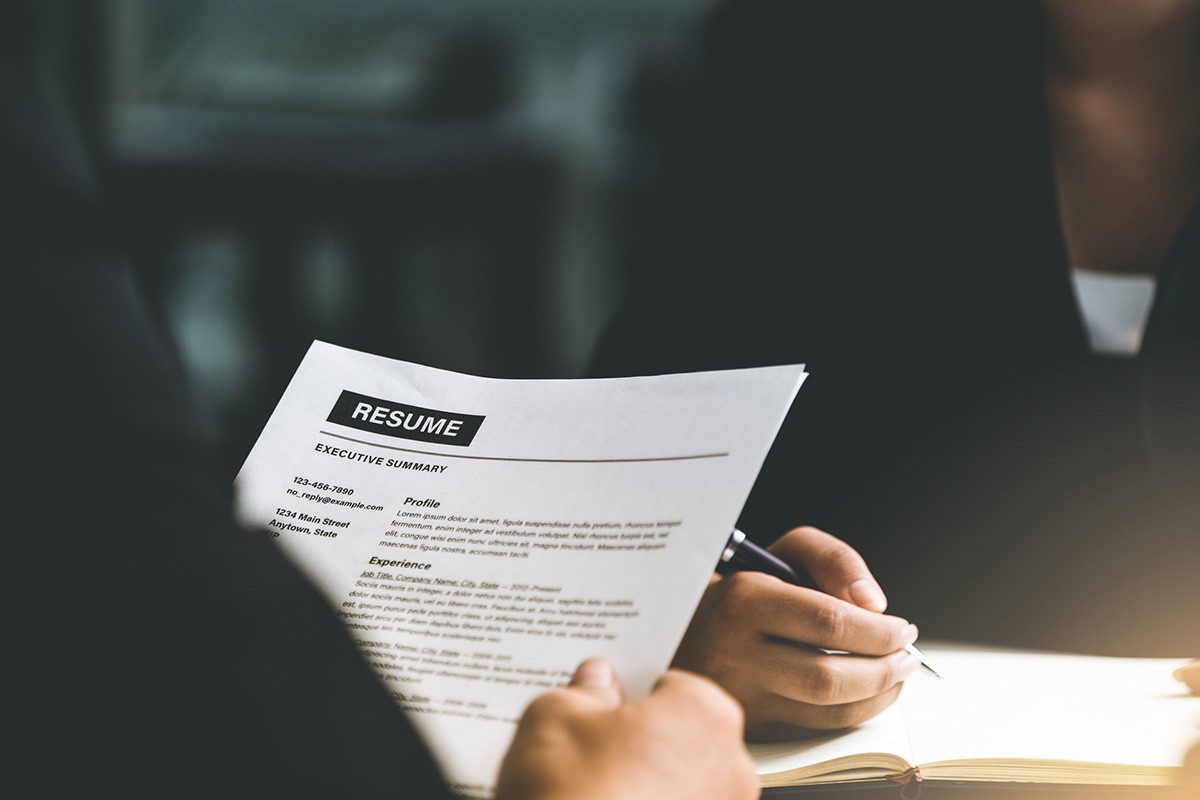Interviews can be a double-edged sword for job seekers. They’re necessary for getting the job you want, but they can also be a big source of stress.
In this article, we will explore six steps with details about how to prepare for an interview.
- Contact your references.
- Conduct a self-assessment.
- Research the position and employer.
- Prepare for the interview setting.
- Practice answers to common interview questions.
- Prepare questions for the interviewer.
1. Contact Your References
Our first step may seem obvious, but skipping it can put you at a big disadvantage. Make sure you contact your professional references ahead of time so they know you are interviewing for a position. This can help you in two key ways:
- Your references will be ready to sing your praises. Each employer handles reference calls differently. Some contact references to screen candidates before conducting interviews, and others call references after interviews to help narrow down the list or to be a “tiebreaker” of sorts. No matter what’s true for your situation, it’s always helpful to notify your reference as soon as you know that you are moving forward in the process. This will also ensure that they pay closer attention to incoming phone calls and emails.
- Your references may have helpful information about the employer. They may know someone at the organization, or they may have other information that will be helpful to you as you prepare.
2. Conduct a Self-Assessment
Another important step in preparing for an interview is conducting a self-assessment. Reflect on your career. Think about what you’ve accomplished so far and what you want to accomplish in the future. Also, consider your preferences for workplace culture. What kinds of personalities complement your own? You’ll want to reflect on these topics as they will likely come up in an interview.
There are many options for online self-assessments. Although some are designed to guide people when deciding on a career, many assessments are also helpful for interview preparation. The results may help you find the right words to describe yourself.
Conducting a self-assessment is also a good time to search for yourself online. According to a CareerBuilder survey, 70% of employers use social media to research job candidates and 66% use search engines. It may be too late to do a complete overhaul of your online reputation if you’ve already scheduled an interview, but there’s still time to make some last-minute edits to your LinkedIn profile. Familiarize yourself with what employers see when they search for you so you’re prepared to answer any questions about their findings.
3. Research the Position and Employer
If you’ve been invited to interview for a position, you already know at least something about the position and the employer. Preparing for an interview is the right time to go deeper into the details.
Review the Job Description
Before an interview, study the job description line-by-line. Go back to your self-assessment and review how well your experience matches what is listed in the posting. The interviewer may not directly ask how your previous work lines up with the requirements of the position, but making that connection yourself shows that you pay attention to details.
Find More Info About the Employer
If you’re unfamiliar with the employer, there are plenty of ways to find more information. Here are two of our favorite articles about researching employers:
This is also a good time to tap into your professional network. Ask your closest colleagues if they know anything about the organization, good or bad. You may uncover some information through your personal connections that isn’t available online.
4. Prepare for the Interview Setting
After you’ve finished your research, it’s now time to prepare for the interview setting. No two interviews are exactly alike, and many of those differences come from the format and location. How you prepare for the interview will be heavily influenced by the setting, so reach out to the employer beforehand to confirm you know what to expect.
Here are some of the most common interview settings you may encounter, along with links to some of our favorite resources:
Considerations for In-Person Interviews
When preparing for in-person interviews, here are some things to keep in mind:
- Visualize the setting. If you’re interviewing for a position in public administration, you’ll likely be in a different physical space than you would if you’re pursuing a job in health care. Thinking about your surroundings ahead of time may ease some of your stress leading up to the day. You may even be able to find some photos of the facility by conducting some basic research online.
- Prepare your materials. What do you want to have accessible before, during and after the interview? Bringing several copies of your resume and other application materials is a common strategy, but what else would be helpful? You may want to print out the job description and highlight sections and add your own notes. Doing this will help you prepare your answers, and you may also impress the interviewer if they notice your attention to detail.
- Practice the route to the interview location. When practicing the route, try to travel at the same time of day as your scheduled interview. It’s also a good idea to target your arrival for at least 15-30 minutes early on the day of the interview. You’ll be glad you included that extra time in your plans if you run into unexpected traffic, and you can also use it to visit the restroom or review your notes.
- Decide what you’re wearing and try it on ahead of time. Don’t get caught in a situation where the clothes you have in mind don’t fit well on the day of the interview. Also, when deciding what to wear, research the organization and determine whether business professional, business casual or something else is more appropriate. If you’re in a career like emergency medical services, you may be fine with a more casual look, especially if you’ll be going through any work simulations or skills tests during the interview. When in doubt, go with business professional.
Considerations for Remote Interviews
Interviews conducted remotely, whether they’re via phone or video, have their own set of additional considerations:
- Thoroughly prepare your materials. You’ll probably be able to access more information during a remote interview than you would if it was in-person. Print out anything you think may be helpful, or bring it up on a computer screen. Use caution though; you’ll want to refer to the materials naturally and not delay your answers too much while you search for the right document.
- Test your technology. The interview can’t happen if your technology isn’t cooperating. If the interview is over the phone, confirm you’ll be somewhere with strong reception or access to a land line. Also, for mobile phones, make sure they’re fully charged or plugged in to a reliable charger. For interviews conducted over the internet, test your audio and video equipment and the software you’ll be using to connect with the interviewer. Finally, if you aren’t the best with technology, find someone who can help you test your equipment or – even better – be with you during the interview to help troubleshoot.
5. Practice Answers to Common Interview Questions
Practicing your answers to common interview questions may be the most critical step. Interview practice is important enough that we’ve created a standalone resource on that topic, which is available by following the link below.
Job Interview Practice: Why It’s Important and How to Do It
6. Prepare Questions for the Interviewer
Most interviewers will save at least a few minutes at the end so that candidates can ask their own questions. Asking questions at the end of an interview shows that you are curious about the position and that you’ve researched the organization. On the other hand, if you finish an interview without asking any questions, it may seem like you are not prepared, or even worse, not interested in the position.
Your questions at the end of an interview can cover a variety of topics. Here are a few ideas:
- Can you describe a typical day for someone in this positon?
- What training does the person in this position receive?
- What are the most common challenges faced by the person in this position?
- How would you describe the work culture here?
- What do you enjoy most about working here?
If the topic hasn’t come up before the end of the interview, you’ll also want to ask about the next steps of the interview process. Before you leave, ask about when you should expect to hear back from the employer and whom you can contact with questions after the interview.
Conclusion
Interview preparation can be the difference between landing your dream job and having to settle for something else. Your performance during the interview and your follow-up after the interview are also important, but what you do ahead of time will set the tone.
Columbia Southern University Career Services produces various resources for students and alumni, including a comprehensive career services manual with even more tips for interview preparation. For more information, visit ColumbiaSouthern.edu.





